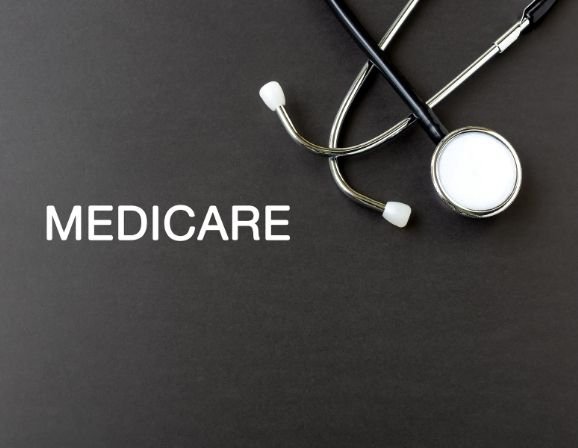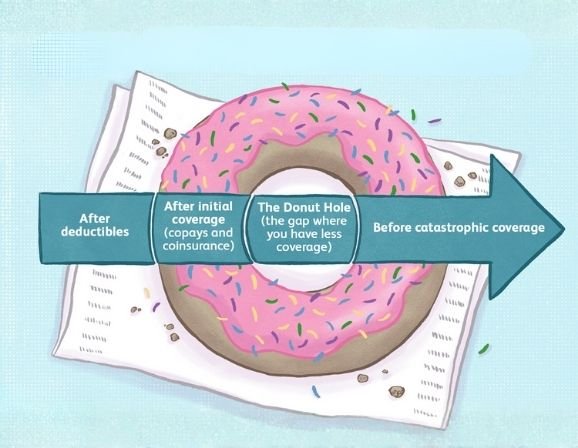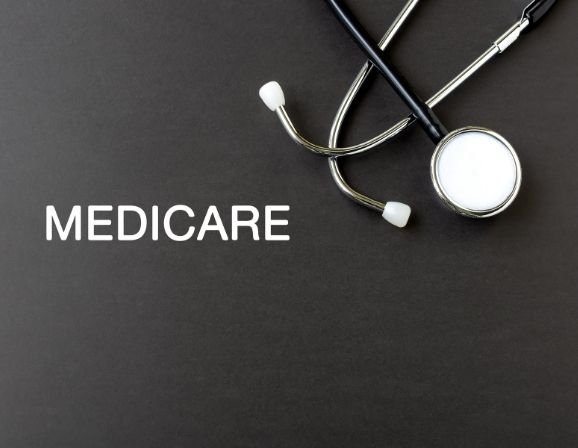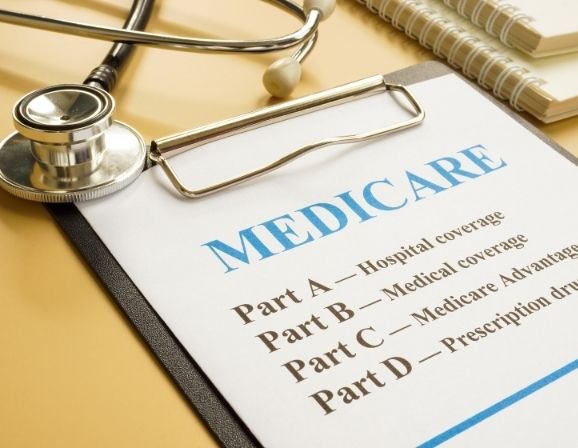Health insurance can be costly, and the Affordable Care Act (ACA) tries to make it easier with premium tax credits and cost reductions. But not everyone gets those benefits.
Some people earn too much. Some already have work-based coverage. Others don’t meet immigration requirements.
Knowing who doesn’t qualify for ACA subsidies and why can help you plan for the next open enrollment period.
What ACA Subsidies Are and How They Work

ACA subsidies, called premium tax credits, reduce monthly health insurance costs for people who buy plans on the HealthCare.gov Marketplace. Eligibility depends on income, household size, tax filing status, and immigration status.
ACA Subsidy Eligibility Rules
You qualify only if you:
• Buy a plan through the Marketplace
• Have income between 100% and 400% of the Federal Poverty Level (FPL)
• Can’t get affordable coverage through an employer or public program
• File a federal tax return for the year you receive the credit
• Are a U.S. citizen or lawfully present immigrant
If you don’t meet any of these, the Marketplace won’t apply a subsidy to your plan.
Income Too High for ACA Subsidies
Your income is the first filter for ACA help. The credit amount drops as your income rises and ends once you pass a set limit.
Before the American Rescue Plan (ARP), anyone earning above 400% of FPL got no help. ARP temporarily removed that limit until 2025. If Congress does not extend it, the old cutoff returns in 2026.
Example of ACA Subsidy Disqualification by Income
A family of four earning $130 000 is around 430% of the FPL. Once ARP ends, they will no longer receive premium tax credits and must pay full price for Marketplace plans.
Even now, people with very high incomes may see their credits reduced to almost zero.
Health Insurance Subsidy Restrictions
Subsidies are based on projected annual income. If you underestimate, you may owe money back to the IRS when filing taxes. If you overestimate, your credit will be smaller than what you deserve.
Always update your Marketplace profile when income changes. It keeps your premium accurate and prevents tax surprises.
Employer-Sponsored Insurance and Subsidies
Having a job that offers coverage usually means no ACA help. Even if you think Marketplace plans are better, you can’t receive tax credits while your employer offers an affordable plan with minimum value.
Employer Coverage Affordability Test
A plan is “affordable” when the worker’s share of the self-only premium costs less than 8.39% of household income for 2025 (CMS.gov). If it meets that test, you are locked out of subsidies.
The Family Glitch and Its Fix
Before 2023, if an employee’s own plan was affordable, the family was also blocked from subsidies, even if the family plan was expensive. This was the “family glitch.”
In 2023, a new IRS rule fixed it. Now, dependents may qualify for subsidies if their coverage fails the affordability test.
Still, many families remain in a gray zone where neither employer coverage nor Marketplace plans feels affordable.
When Employer Plans Block Subsidies
If your company plan covers at least 60% of medical costs and meets affordability rules, the Marketplace will not grant you credits.
You can still buy a Marketplace plan, but you’ll pay the full premium.
| Compare Your 2025 Coverage Options Open Enrollment starts Nov 1. Prime Life Financial can check if your employer plan blocks subsidies and help you choose the right coverage before deadlines close. Enroll Now |
Immigration Status and ACA Eligibility

Only people lawfully present in the U.S. can get ACA subsidies. Immigration status plays a key role in qualification.
Lawfully Present Immigrants
You may qualify if you are a:
• Lawful permanent resident (green card holder)
• Refugee or asylee
• Temporary Protected Status (TPS) holder
• Paroled individual or Cuban/Haitian entrant
• Victim of human trafficking or domestic violence (VAWA status)
These groups can buy Marketplace plans and receive tax credits if they meet income rules.
Who Is Not Eligible
• Undocumented immigrants cannot buy Marketplace plans or receive any subsidy.
• DACA recipients (Dreamers) are currently not eligible for premium tax credits, though HHS announced a rule to expand eligibility starting Nov 1, 2024.
• Short-term visa holders like tourists or foreign students without U.S. income don’t qualify either.
The Medicaid Coverage Gap
In states that did not expand Medicaid, some low-income people earn too little for ACA credits but too much for Medicaid. This is the coverage gap.
Example:
A single adult in Texas earning $13 000 a year falls below 100% FPL. Because Texas hasn’t expanded Medicaid, this person can’t get Marketplace help or Medicaid coverage. They remain uninsured unless state rules change.
This gap mostly affects southern states that opted out of Medicaid expansion under the ACA.
| Falling in the Coverage Gap? Prime Life Financial helps find affordable plans and explains special state options before open enrollment ends. Get Help |
Why Updating Your Income Matters
Subsidy eligibility is calculated on your expected income. When you get a raise, lose a job, or change hours, your income shifts. If you don’t update it on HealthCare.gov, you risk losing eligibility or repaying credits later.
How to Avoid Tax Problems
• Report income changes within 30 days.
• Keep pay stubs and tax records ready.
• File Form 8962 to reconcile your advance credits.
Being proactive keeps your coverage accurate and saves money during tax season.
Loss of Eligibility After Life Events
Even if you start with a subsidy, life events can disqualify you mid-year. You must act fast or lose help.
Common Triggers for Loss
• Your income rises above the eligible threshold.
• Household size changes (marriage, children, divorce).
• A dependent leaves the household (e.g. turns 26).
• You gain employer coverage that is affordable and meets minimum value.
• You move to a state with different rules or non-expansion.
If you don’t update your Marketplace application after these events, your subsidy can stop or you may have to repay excess credits.
Reporting Life Changes is Critical
The Marketplace requires you to report changes quickly. This keeps your subsidy aligned with reality and avoids tax trouble.
What to Report and How
You should report changes in income, household, address, or coverage. HealthCare.gov lets you “Report a Life Change.”
If income increases, you may get less subsidy or owe money back.
If income decreases, you might qualify for more savings.
Deadline and Effects
You must report within 30 days of the change.
If you miss that window, you risk losing the subsidy or facing repayment.
After the change, the Marketplace issues new eligibility results.
Tax Filing Mistakes and Reconciliation
Your eligibility for ACA help depends heavily on your annual tax return ACA subsidies. They are calculated using your income and filing status, so even small errors can cause disqualification.
Form 8962 and 1095-A
To get or keep a subsidy, you file Form 8962 with your tax return. It reconciles your advance premium tax credit with your actual income.
You also need the Form 1095-A from the Marketplace showing what you paid. If it’s missing or wrong, your claim may be denied.
Errors That Cancel Subsidy
• Not filing tax return.
• Not filling out reconciliation on 8962.
• Omitting 1095-A or entering the wrong income.
If errors are found, the IRS notifies Marketplace, and the subsidy is suspended until corrected.
Expiration of Enhanced Subsidies
The larger subsidies provided by ARP and IRA are temporary. After 2025, the old subsidy rules return, meaning many who rely on aid now will become disqualified.
What Changes in 2026
• The income cap of 400% FPL returns, limiting who qualifies.
• Subsidy amounts shrink for middle and upper earners.
• Premiums may rise sharply for those who lose credits.
Many middle-income families who received help in 2024–25 could lose subsidies entirely. Planning now is crucial. The larger subsidies provided by ARP and IRA are temporary. After 2025, the old subsidy rules return, meaning many who rely on aid now will become disqualified. A study from Health System Tracker estimates that net premium payments for most ACA enrollees will rise by over 75% if enhanced premium tax credits expire.
Dual Coverage and Marketplace Conflicts
Some situations automatically block subsidy, regardless of income or household.
Medicare and Marketplace
If you’re enrolled in Medicare, you cannot also enroll in a Marketplace plan and get a subsidy. They conflict.
Employer and Other Plans
If you enroll in an employer plan or another public plan while keeping a Marketplace plan, your subsidy may stop.
If your employer offered you affordable & minimum value coverage, even if you didn’t pick it, the Marketplace disqualifies your subsidy.
Appeals and Marketplace Errors
Sometimes the Marketplace makes mistakes. You can appeal decisions to restore subsidy eligibility.
When to Appeal
• Denied subsidy despite meeting all criteria.
• Mistakes in income calculation by Marketplace.
• Errors in immigration or identity verification.
Appeal Rules
You must file an appeal within 90 days of the decision. Provide evidence like income proof, tax returns, or legal documents.
After appeal, the Marketplace will re-examine your case and may restore your subsidy.
| Fix Eligibility Mistakes Fast If your subsidy was denied or cut, Prime Life Financial can help you appeal and restore your aid before it’s too late. Get Help |
How to Regain Subsidy Eligibility

If you lose a subsidy, it’s not always permanent. Some paths let you get it back.
Steps to Regain
• Lower your reported income so it fits into the subsidy range.
• Lose or drop employer coverage that meets minimum value.
• Correct tax filing or complete missing documentation.
• Change immigration status to a lawfully present category.
Once your profile is corrected, you may requalify during open or special enrollment.
Importance of Annual Review
Every year, renewal triggers fresh checks of income, household, and coverage. If you’re not careful, your subsidy can vanish.
What You Should Do
• Before open enrollment, review all your income, dependents, and coverage.
• Upload fresh proof of income.
• Don’t just accept auto-renewal; compare all plans.
• Correct any mismatches in your Marketplace profile.
Regular review keeps your subsidy intact and avoids surprises.
Role of Prime Life Financial
Prime Life Financial stands as your guide through all these rules. Losing a subsidy is painful, but many losses are avoidable with expert support.
How We Help
• Real-time review of income and eligibility before enrollment.
• Assistance in appeals and document submissions.
• Ongoing monitoring of federal changes (2026 subsidy cut, DACA expansion).
• Support preparing tax reconciliation (Form 8962) correctly.
Time is limited. Every month matters in subsidy and coverage.
Conclusion
ACA subsidies offer critical help, but they come with strict rules and shifting conditions.
Life event triggers, tax mistakes, coverage overlaps, and upcoming policy changes all threaten eligibility.
If you lose your subsidy, you don’t always have to stay disqualified — but you must act swiftly and accurately.
Prime Life Financial is ready to guide you through the complexity, restore benefits, and protect your health coverage before the open enrollment window closes.
FAQs
Who doesn’t qualify for ACA subsidies?
People with incomes above limits, those with qualifying employer coverage, undocumented individuals, and those failing tax reconciliation don’t qualify.
Who is eligible for an ACA subsidy?
U.S. citizens or lawfully present people with income in the allowed range, filing taxes, without affordable employer coverage.
What disqualifies you from the premium tax credit?
Employer coverage deemed affordable, income exceeding threshold, tax filing errors, and immigration status issues.
Are ACA subsidies going away in 2026?
Enhanced subsidies under recent laws are set to expire after 2025 unless Congress acts, which may reduce or eliminate support for many.
References
Reporting income, household, and other changes. (n.d.). HealthCare.gov. https://www.healthcare.gov/reporting-changes/why-report-changesAre you eligible to use the Marketplace? (n.d.). HealthCare.gov. https://www.healthcare.gov/quick-guide/eligibility/






